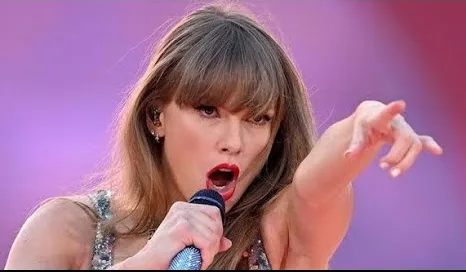The rise of pop stars like Taylor Swift marks a shift in public adoration from movie actors to musicians
Taylor Swift‘s Eras Tour has captivated fans, who spend hundreds on tickets, travel, and merchandise. As Swift heads to the UK, cities brace for an influx of sparkly outfits and mass singalongs. However, while pop stars draw massive crowds, movie stars no longer command the same box office power.
The shift is due to various factors: streaming, the pandemic, and Hollywood’s reliance on franchises. Modern audiences crave authenticity, found more in pop stars who write their own music than in actors who portray characters. The Hollywood Reporter’s Lily Ford notes that music feels personal, fostering a deep connection between fans and artists.
Stars like Harry Styles have completed extensive stadium tours, capitalizing on their personal brand. Conversely, popular actors often rely on established intellectual properties (IP) for box office success. For example, Timothée Chalamet’s recent hits, “Dune” and “Wonka,” already had dedicated fan bases.
Movies still succeed, but it’s the story and characters, not the star power, that attract audiences. Successful films are often franchise-driven, with recent hits including installments of “Fast & Furious” and “Guardians of the Galaxy.” Even with big names like Ryan Gosling and Emily Blunt, original films struggle to find the same success.
Streaming services have become a haven for actors. Adam Sandler’s Netflix deal made him the highest-earning actor last year, indicating a potential shift away from traditional cinema. Movie stars also join superhero franchises for big paychecks, though this often limits their original work.
In contrast, pop stars like Swift, Adele, and Beyoncé are their own brands, fostering a strong sense of community among fans. Attending their concerts creates a supportive environment where fans feel connected. This communal experience is less common in cinemas.
The decline in movie stars’ influence partly stems from changing audience behaviours post-pandemic. However, stars still draw crowds in live settings, as seen with sold-out tickets for Tom Holland’s “Romeo and Juliet.”
Despite the dominance of pop stars, many still seek the glamour of film acting. Styles starred in two movies in 2022, and Ariana Grande will feature in the upcoming “Wicked” adaptation. Interestingly, Swift’s concert film outperformed major franchises in cinemas, showing the enduring appeal of pop stars.
As the landscape evolves, new actors like Austin Butler and Zendaya are poised to become the next big movie stars. However, even established names like Paul Mescal lean on sequels for major roles. Tom Cruise, often cited as the last true movie star, also relies on franchises like “Mission: Impossible.”
While the traditional movie star may seem sidelined, their legacy endures. Movie stars have shaped Hollywood’s allure, and their impact remains significant in the entertainment world.
Analysis:
Political Impact:
The decline of movie stars in favour of pop stars reflects a broader shift in media consumption and public influence. Politically, this shift could influence funding and support for different sectors of the entertainment industry, potentially affecting policies related to cultural promotion and media regulations.
Social Reflection:
The rise of pop stars over film stars mirrors society’s demand for authenticity and personal connection. Pop stars who share their personal stories resonate more with today’s audience, highlighting a cultural shift towards valuing genuine, relatable content over fictional portrayals.
Psychological Aspect:
Psychologically, fans form deeper emotional connections with pop stars because of the perceived intimacy and vulnerability in their music. This personal connection can lead to stronger fan loyalty and a sense of belonging, which is less prevalent with movie stars who primarily portray characters.
Sociological Angle:
Sociologically, the prominence of pop stars signifies a change in how communities form and interact. Concerts and live performances create communal experiences that foster social bonds and collective identity among fans, something that traditional cinema-going lacks.
Fashion Culture:
Pop stars often influence fashion trends and cultural aesthetics more directly than movie stars. Their personal style, showcased in music videos and live performances, sets trends and inspires fans, reinforcing their cultural impact beyond just their music
